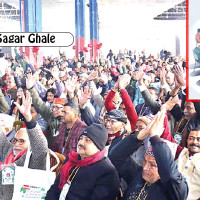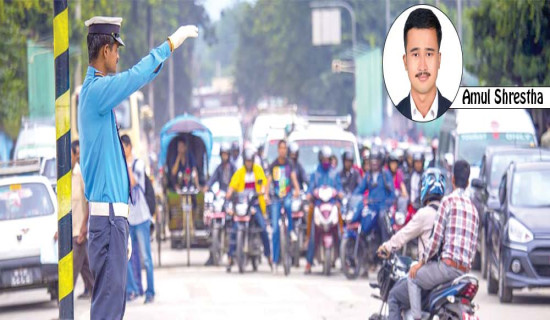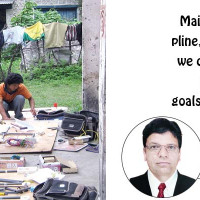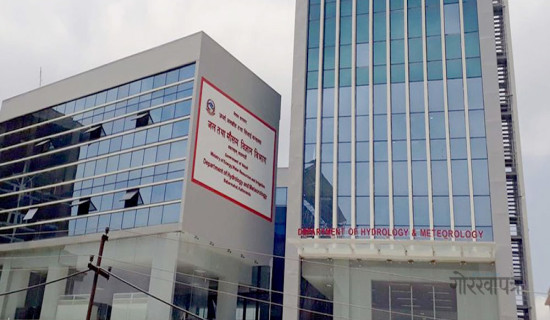- Sunday, 25 January 2026
Eyes Of Longing Wait
By Bidikshan Soni
The rain fell in a slow, mournful drizzle, as if the sky itself were weeping for the sins and sorrows of the world below. The Tampo was a cramped, suffocating box of humanity, filled with the stench of damp clothes and the low hum of voices, voices that rose and fell like the tide, overlapping, colliding, dissolving into nothingness.
A man in the corner laughed too loudly at something on his phone, his face illuminated by the cold, artificial glow. Another sat flumped, his head in his hands, his exhaustion palpable. But it was her, the old woman of about sixty of age, with the grey, distant eyes, who held me captive. Her gaze was fixed on the rain-streaked window, but she wasn’t seeing the world outside rather looking beyond it, into some vast, invisible abyss, where the shadows of memory danced like ghosts.
I watched her sternly. Her hands, knobbly and trembling, twisted the edge of her shawl. She raised a hand to her face as if to wipe away tears, but there were none—only the faintest glimmer of moisture in her eyes, like the first hint of dew before a storm. And again, the shawl accompanied her.
“Hajur thik hunuhuncha, Aama? (Are you fine, Mother?)” I suddenly found myself asking.
She turned to me slowly, her eyes now, thoroughly looking at me. Her smile was faint, almost imperceptible, but it was there—a fragile, trembling thing, like a candle flame flickering in the wind. “I’m fine, son,” she said, her voice soft but steady. “It’s just a slight body ache.”
Her words were a lie, and we both knew it. But there was a tenderness in her deception, a softness that reminded me of the way my mother used to hum lullabies when I was a child. It was an illusion, of course—one as delicate as the morning frost that melts at the first touch of sunlight. And yet, I clung to it, knowing full well it would dissolve, as all such illusions do.
“Where are you from, Babu?” she asked with the same tenderness.
“From Rukum,” I replied. “Ani hajur (And you)?”
“I’m from here, Kathmandu,” she said, her smile deepening the lines on her face. But her eyes betrayed her, drifting back to the window, to the rain, to the invisible abyss beyond. They were so mystical. They held something ancient and infinite, like the ocean’s depths or the night sky, pulling me to the edge of a precipice, where I stood, staring into the void.
“Do you have children?” I asked, the question slipping out before I could stop it. It felt out of context. Why would I ask that, I thought, despising myself. But her eyes softened at the words—not with joy, but with a sorrow so deep it seemed to stretch across years, across lifetimes. I felt as though I had stumbled into a place where I did not belong, and I miserably felt remorse for what I had just asked.
“A son,” she said, her voice trembling. “He was… everything to us, me and my husband. But he’s gone now. To a foreign land. He promised he would return, you see. He promised.” Her voice broke, thin and fragile, like glass underfoot. She clutched the edge of her shawl. For a moment, her eyes glistened, not with tears, but with the faint, distant light of cheerful houses.
“He left twenty years ago,” she continued. “He said he would go abroad, earn money, and come back. He said he would build us a new house. He said... he said he would never leave us alone. The wait was too long for my husband to bear, and he died, died of pain, of waiting for his only son,” her voice cracked, and she wiped her eyes with the edge of her shawl, though the tears kept coming.
“At first, he called every week. He would tell us about his work, about the city, about how much he missed home. And then... the calls became less frequent. Once a month. Then once every few months. And then... nothing.” She paused, her breath hitching, and I could see the effort it took for her to continue. “ We both waited. Every day, we waited. And now I wait for him alone by the window and watch the road. I think... I think maybe he will come back. Maybe he will keep his promise.”
“I don’t know if he’s alive,” she paused for a while and sobbed. “I don’t know if he’s happy, if he’s safe. I don’t know if he even remembers me.” She looked down at her hands, now clasped tightly in her lap, and I could see the effort it took for her to hold herself together. “Sometimes, I think maybe he has found a new life there. Maybe he has a new family, a new mother. And maybe... maybe it’s better that way. Maybe he’s happier without me.”
I wanted to tell her that it wasn’t true, that her son couldn’t have forgotten her, that he would come back one day. But the words caught in my throat, brittle and meaningless, like dry leaves crumbling to dust. How could I offer her hope when hers had been eroded by years of waiting, reduced to a faint, flickering ember, barely alive in the cold wind of her despair? To speak of hope felt like a betrayal, a cruel mockery of the quiet dignity with which she carried her grief. And so I said nothing, letting the silence stretch between us, heavy with the weight of all the things we could not—or would not—say.
She turned to me, her smile faint and fragile—the kind of smile that knows the person beside them is sorry but understands no words can mend what’s broken. It was tinged with a sadness that seemed to stretch beyond the cramped Tampo, beyond the rain-soaked streets of Kathmandu, beyond even the edges of the world itself.
I had no strength to console her, so I gave her a hug and told her everything would be fine—words that felt more like a reflex than a promise. The rain still fell as I stepped off the Tampo, her face lingering in my mind—those gray eyes, the fragile smile that seemed to carry the weight of a lifetime. I walked through the wet streets, the city’s lights shimmering like distant stars, and felt the quiet ache of her story settle deep within me.
(The author is an intern at The Rising Nepal.)














-original-thumb.jpg)

